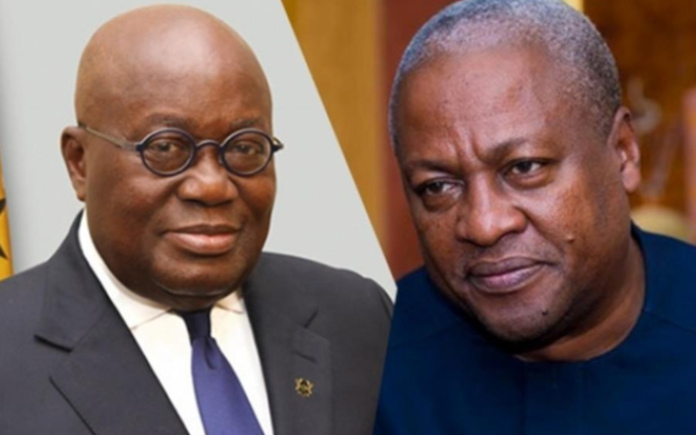In a recent campaign rally in Kasoa, John Dramani Mahama, the flagbearer of the National Democratic Congress (NDC), publicly criticized President Nana Addo Dankwa Akufo-Addo for what he described as an excessive pursuit of honorary doctorates. Over the past eight years, President Akufo-Addo has received multiple awards and honorary degrees from various institutions both in Ghana and abroad, a trend Mahama sees as indicative of the President’s character. By framing the issue in the context of an “appetite” for such accolades, Mahama suggests that the President’s actions reflect a deeper flaw, which is a lack of genuine humility in leadership.
Mahama’s remarks were more than simple rhetorical flourishes; they aimed to portray Akufo-Addo as disconnected from the reality faced by ordinary Ghanaians. He accused the President of exerting pressure on universities to bestow these honorary titles upon him, highlighting a sense of entitlement that Mahama believes undermines the integrity of both the institutions and the leadership. Such assertions are particularly charged in the run-up to the 2024 general election, as Mahama seeks to consolidate support for the NDC by questioning not only Akufo-Addo’s qualifications but also his leadership style.
In addition to his critique of the honorary degrees, Mahama commented on a recent event where Akufo-Addo unveiled a statue in his own honor in the Western Region. This act, according to Mahama, epitomizes a troubling lack of humility and self-awareness in leadership. “The end of ‘try me and see’ is trials,” Mahama stated, referencing the hardships faced by Ghanaians during Akufo-Addo’s presidency. His remarks gathered force as he highlighted the contrast between self-aggrandizement and the humility expected from a leader, emphasizing that true recognition should come from others rather than being self-conferred.
This series of criticisms, aiming to undermine both the character and policies of President Akufo-Addo, comes during a critical time for the NDC as it prepares for the general elections. Mahama leverages these instances to paint a picture of an out-of-touch president who is more focused on accolades than addressing pressing national issues. By framing the conversation around humility and authentic leadership, Mahama not only positions himself as a more relatable alternative but also seeks to elevate the discourse surrounding governance in Ghana.
Moreover, Mahama’s critique reflects broader themes in political dialogue around leadership ethics and accountability. In a country grappling with economic challenges and governance concerns, the actions of a leader hold significant weight in shaping public perception and influencing voter sentiment. By questioning the appropriateness of a leader who seeks to immortalize himself through statues and honorary titles, Mahama aims to resonate with an electorate that desires genuine representation and responsiveness to their needs.
As the campaign progresses, Mahama’s strategy to emphasize the discrepancies between his leadership philosophy and that of Akufo-Addo may play a crucial role in galvanizing support for the NDC. His focus on humility and rootedness in reality stands as a call to the electorate to consider the values and character of those vying for public office. With the political landscape continually evolving, Mahama’s remarks not only critique the current administration but also offer a vision for leadership that values humility, integrity, and people-centered governance, which he hopes will resonate with voters as the election approaches.


